AudioCulture
The noisy library of New Zealand music
Te pātaka korihi o ngā puoro o Aotearoa
Tony Peake
Changing it for the better – it seems – by pioneering Garden city punk with The Vandals and catching the moment with The Newtones, before letting loose Afrika Bambaataa, roots and dub reggae on Radio U show Blue Monday and at Zanzibar, one of the city’s first post-punk dance clubs. All the while seeding the city’s air and imaginations with imported music from his University Bookshop lair.
In the 1990s, Tony Peake ran The Edge nightclub and gave Dark Tower and Salmonella Dub a thumbs-up and helping hand. He couldn’t help himself. Music was central. When he died near Adelaide in October 2010, Christchurch lost its most liked and remembered cultural shaker and maker of recent times.
Christchurch in the time of Tony Peake
In mid-November 1994 I found Tony Peake amid the chaos of a soon-to-open Christchurch nightclub, The Edge. He was in a small upstairs office, the sort you’d see cops and editors disappear into on 1970s TV shows. As busy as he was, he found time for an interview about his early days as tastemaker, musician and dance club mover in the garden city.
A spiky interview resulted – full of the urgency of the present; the barbs and slights of the past and the undeniable highs that came of a central role in a cultural space in rapid flux. "Christchurch in the time of Tony Peake", fellow-traveller Roy Montgomery will later label the era in an expansive, guitar driven piece, released in June 2012, two years after Peake’s death in Australia on October 13, 2010, aged 57.
Arriving in Christchurch from Adelaide in 1975, Tony Peake found his feet in the city’s music scene in late 1977, fronting punk-curious The Vandals at infamous musician and low life hangout, the Gresham Hotel in Cashel Street, and in the intimate hedonistic Mollett Street market venue with its patchwork crowd of young punks, hippies and Garden City oddballs.
Pointed Beatle boots, tight black jeans and green hair, smoke dangling from the side of his mouth and shades.
The Vandals were an uneasy alliance of the old and the new. Charlie White, guitarist with R&B rockers Maud and The Kippers wanted in on the hot emerging sound so he tapped local identity, Al Park, to join him. Park brought Tony Peake along to sing. Backed by The Kippers’ rhythm section, Luke Neary (bass) and Bob Ogilvie (drums), they became known for their fast, funny and danceable punk sound and Peake’s distinct look, as seen on the front page of The Press in late 1977 – pointed Beatle boots, tight black jeans and green hair, smoke dangling from the side of his mouth and shades. Fingered in the story as Christchurch’s first punk, he’d point instead to Christine and Robin Neate, just back from England.
“The Vandals had only two original songs,” Peake remembered in 1994. “‘Politicians are Cannibals’ and ‘Get Vandalised’. We did a 45 minute gig for television that included ‘Gimmee Gimmee Shock Treatment’ and ‘Love Comes In Spurts’. Dr Rock (Radio with Pictures compere) called us: “Top of the Christchurch punk rock slag pile.”
In March 1978, Peake and Park bailed for The Aliens. Park: “Tony wanted to do more original material. He was influenced by New York-styled punk and frustrated with Charlie White. We played Dead Boys, New York punk, The Ramones and Eddie and The Hot Rods.”
The Aliens – Al Park (guitar), Tony Peake (vocals), Michael Jefferis (guitar) and Tony Silverside (drums) – had formed to support The Enemy for their first Christchurch performance in April 1978, which Peake had organised. He was already in touch with the country’s rising post-punk scene. “I’d started to make contact with the punk scene in Auckland. I used to go up there quite a lot,” he remembered. “There was tight little music scene in New Zealand in the late 1970s, we all talked to each other. It was through The Vandals that people like The Enemy and The Clean got to play in Christchurch. They stayed at my house.”
Back home in Christchurch, Peake dispensed advice, tips and encouragement from behind the second floor record counter of Canterbury University’s bookshop, where new sounds were always welcome and available. Many of the memories offered in the wake of Tony’s death were of this space. Stephen McIntyre recalled in NZ Musician in November 2010: “He (Tony) treated music as a sacrament and his tucked-away corner had the feel of a holy space: the strong smell of Indian incense, behind the counter a warm, friendly man with a sparkle in his eye, and always something fantastic on the turntable.
“His upstairs record counter was our equivalent to Malcolm McLaren’s Kings Rd shop: an extraordinarily cool place to hang out, listen to the very latest and best sounds, smoke and chat with odd-looking people – many soon-to-be musicians. A lot of bands got formed or got their first break by hanging out at the UBS loft.”
Roy Montgomery on The Opinionated Diner in mid-October 2010 remembered Tony in the late 1970s and early 1980s as "a kind of counter-cultural bureau chief, who had two offices, one at work as mentioned above, the other at home in Queens Ave, Merivale. He was very good at connecting people to cultural objects or to each other. “Have you heard …? No? (puts cigarette in mouth, squints slightly, lays vinyl on turntable) Listen to that bassline …”
“For drop-outs like me Tony’s drop-in centres were an important element in my re-education. I recall a certain meticulousness about presentation. A red Jansen Invader overhauled by (the other) Bob Mould at Music Specialists replete with Schaller machine heads and humbucking pickups. A process that seemed to take years. A well-modulated androgyny – young women rhetorically and hopefully telling me 'He’s not really gay' …”
A strong punk-related gay aesthetic was central to parts of Christchurch’s punk scene. There were two scenes, in particular – The Vauxhalls’ Johnny Velox (Michael Williams) told punk historian Wade Churton – around Paul Johns and Tony Peake. “That scene was mediated through queer culture. Especially coming through the likes of PJ, who was gay, and Tony was gay. And they were the big tastemakers, to some extent,” scene observer, Dave McKenzie added, in the same piece.
Talking about it, seeing it, putting it on the stereo; all well and good, but Tony Peake had plenty left to say musically when he joined Mark Brooks – The Vauxhalls’ guitarist was keen to play bass – in Street of Flowers in July 1979.
“Street of Flowers was meant to be quite psychedelic and punky at the same time,” Peake recalled in 1994. “My influences, if any, were from the West Coast of America in the late-1960s then the British punk bands. That was quite evident in the songs I later wrote in The Newtones where I was the principal writer."
“I grew up in Adelaide in Australia, which had one of the most original music scenes in the mid-1960s that included The Masters Apprentices, Bent Beaks, Blues, Rags&Hollers and The Others. I saw The Twilights, Masters Apprentices, Loved Ones, Billy Thorpe and the Aztecs, The La De Da's, Spectrum, who were really inspirational, Tamam Shud and Procession; an amazing off the wall band. I grew up with Hendrix and Cream.” Influences that were a radical departure in a time when The Fall, Public Image Limited and a host of punk-descended groups were holding sway.
"Within weeks, The Newtones had written a set of new songs and supported The Swingers at the Hillsborough and XTC at the Christchurch Town Hall."
– Mark Brooks
With Mark Brooks finally free of The Vauxhalls in late 1980, he and Peake formed The Planes, another short-lived group, retaining drummer Graeme Van der Colk for their next project, The Newtones. Mark Brooks on The Opinionated Diner: “I remember drawing up plans to form a band with Tony post-Vandals and Vauxhalls and the intense speed which everything came together. Within weeks, The Newtones had written a set of new songs and supported The Swingers at the Hillsborough and XTC at the Christchurch Town Hall and had begun to play our own shows at the DB Gladstone – a testament to his vision."
“The band was a very eclectic meeting of the minds. Tony and I wrote songs at completely different ends of the musical universe. Tony loved reggae and lots of obscure things like Ralph Records' signing, Yello. He introduced me to stuff I may never have come across. His job at the University Bookshop record counter was an essential ingredient in the band's make up. We both liked (early) Public Image and The Cure a lot. Fred Kramer was Mr Industrial, always dressing in black, and Graeme liked Motorhead and Wire, amongst other things."
“Just before Graeme left, Tony and I were heavily getting into UK funk stuff like The Gang of Four, The Pop Group and The Au Pairs – that Rough Trade Records sound. We were also into the psychedelic funk of Norman Whitfield like The Temptations' Cloud Nine and Masterpiece LPs.”
Tony Peake: “The (Newtones) music was jazzy in concept. We covered a broad range of things. We’d practice until we knew where the bass parts changed and fitted into the drums and how the guitars went. We worked it out on stage over a period of time. I made up vocal lines to sing to specific people in the audience. It was quite purposeful and it worked quite well.”
When Auckland indie Propeller Records requested a track for their Class of ‘81 new group compilation, The Newtones, recorded two at Robbins’ Recording studio in Christchurch. Peake’s dubby, psych instrumental, ‘New Way’, the song selected by Simon Grigg, and a Mark Brooks pop song, ‘Drive You To Tears’. Both songs were filmed for new music show Shazam!. When the landmark compilation was released early the following year, The Newtones joined Auckland’s best at The Gladstone for a Class of ’81 showcase.
The Newtones entered the national singles chart at No.13 in May 1981, selling its entire 300 pressings in the first week and dropping out the next.
The Newtones returned to Nightshift studio in November 1980, keen to record more of their swelling set with soundman Fred Kramer and engineer Arnie Van Bussell for independent release. Their debut EP resulted. Released independently in May 1981 as Newtones, it documented the Christchurch trio’s rise from punk with a stinging version of Street of Flowers’ ‘China’, a Tony Peake song echoing the aggression of the punk years and hinting at his love of sixties psychedelia. The flanged pop-rock of Mark Brooks’ ‘Paint The Town Red’ proved an effortless Christchurch anthem as did ‘Christchurch Part 2’. ‘Santa Anna’, a leftfield Mark Brooks composition, showed a rebel funk influence.
Newtones entered the national singles chart at No.13 in May 1981, selling its entire 300 pressings in the first week and dropping out the next. A not uncommon occurrence for New Zealand post-punk releases as starved fans snapped up the limited runs and interested record stores fixed sales numbers. A video of ‘Paint The Town Red’ appeared on television chart show Ready To Roll.
Christchurch’s live scene was on fire in 1981. Peake: “We built the whole thing up. I insisted The Playthings support us then got them their own gigs. I did that for a lot of bands and kept doing it when I was doing Zanzibar. Not many bands were leaving Christchurch.” They didn’t need to. New Zealand’s exploding post-punk scene came South in 1980 and 1981. An outbreak of creativity in which The Newtones, as one of Christchurch’s top live draws, more than held their own.
Peake: “We were basically the resident band at the Gladstone. They knew we could play there and they’d sell a lot of piss. And it was quite unprecedented that we could do that and not be a covers band. The Newtones had a wide appeal – long haired hippies, older people, punks.”
Mark Brooks: “We usually drew a big crowd and would always have an interesting support band. One week, we had our artists in residence – Robin (Neate) and Brian (MacMillan) – put a mad film together with two simultaneous screens showing stuff like car crash tests while the other film had a Black and White Minstrels thing on it.”
What the swelling crowds heard was an experimental act awash with new influence and inspiration.
What the swelling crowds heard was an experimental act awash with new influence and inspiration. The Vauxhalls’ Martin Archbold, who joined The Newtones in late 1981, says: “Tony liked his noise. I had a drum machine that used to create pink sound, white sound, and reverberate and we’d play around with it … plus guitar effects, phasers … Mark and Tony were really experimenting at that time. I don’t know if The Newtones ever found themselves fully, we were too busy experimenting.”
Mark Brooks: “After Martin Archbold joined, we evolved into a much looser funkier band. We would rehearse a new song at Tony’s and go over it maybe twice. Then we would try it out in front of the Gladstone crowd with little regard for form and just follow whoever did something interesting. We were always experimenting and most of our set was highly improvised. We could play the same songs a different way every night. Our sound guy, Fred Kramer, was still adding his tapes to the mix, but we had a more straight forward sound than our psychedelic beginnings. We played our set of originals, and usually included covers of Dylan's ‘Ballad of a Thin Man’, Sonny and Cher’s ‘The Beat Goes On’, Alternative TV’s ‘Splitting in Two’ and The Classic IV’s ‘Spooky’.
“We also had the advantage of student radio, which was very supportive of local groups, and regularly playlisted our singles. Loads of people listened to the university radio as the commercial stations just totally missed the boat. Radio U would hype up our shows at the Gladstone and the university, so we usually played to a pretty full house.”
With Martin Archbold firmly in the drum seat, The Newtones booked the only out of town shows they’d play, at Dunedin’s Shoreline in late November 1981. Peake: “We had a $1500 guarantee at the Shoreline. The first night we were there (of a Wednesday to Saturday slot), there were no people. On the second night, two, the third, one hundred and fifty. Martin (Archbold) had just joined the band. And that was the making of us as a coherent, cohesive unit. Martin and Mark being tight from The Vauxhalls made it easy for me.” They improvised a new song for the trip. A jokey surf instrumental called ‘Sharks At St Clair’.
A second Newtones single was recorded at Nightshift Studios with Van Bussell and Fred Kramer with Graeme Van Der Colk drumming on the popular Mark Brooks penned ‘My World’. The drum-less, ‘Incidentally Dreaming’ was penned by Tony Peake. Peake: “‘Incidentally Dreaming’ was written in answer to The Pin Group and bands like that, tempered by bands like Young Marble Giants. It was intended as just acoustic guitar. It was meant to be light. A birthday present for Jonny Ogilvie, a friend of mine, who’d formed a band called YFC.”
Mark Brooks: “Our second single, ‘My World’, was my attempt to follow Phil Spector's pattern for the ultimate pop 45. I worked out the timings for the intro and the old verse chorus verse chorus thing. I thought it came out bloody well, especially Tony's guitar break, which was recorded on Arnie Van Bussell’s 12-string double neck guitar. Arnie also did the backing vocal. The bass sound was a bit wobbly due to over flanging. I still like this song a lot.”
Both songs were A-grade pop. Mature for the day. Released in February 1982, ‘My World’, reached No.47 on the Top 50 and videos were filmed for both songs by Brian McMillan and Robin Neate (who did all the group’s posters and sleeve designs).
Peake: “The video for ‘My World’ was a masterpiece. It was based around advertising. Robin spent a lot of time blocking off a TV screen with tape so that only part was exposed and filmed. It would then flash into colour pictures of the band. ‘Incidentally Dreaming’ was beautiful really Beatlesque in its approach. Lots of falling through clouds, lying on our backs and climbing through trees with lots of psychedelic stuff wavering in the background.” Neither was shown on television. A third Newtones’ song, ‘All Around The World’, an airy adventurous piece of modern pop, was also recorded and appeared on Failsafe’s 1984 Accident Compilation tape.
With Arts Council funding for a film and mini album project knocked back, The Newtones split up in mid-February 1982 after farewell shows at the Star and Garter; a still popular band, almost unheard outside Christchurch. Peake’s next group, Yen, had an ear for discordant, propulsive funk and jazz, but never worked as a group, although it anticipated his move into dance club promotion and hosting. From late 1983, Saturday nights at Peake’s Zanzibar in The Old Star Tavern in Sydenham shook with the latest hip-hop and electronic dance floor hits.
Talking to RWP for their 1984 centre by centre round-up, Tony, outlined the club’s intent: “What I want to do with Zanzibar is cater for everything, from the bands, you’ve seen here over the last two weeks – The Bats and The White Boys, Haemogoblins, Lions and Tigers – that’s a new band – to the latest dance music on Saturday night. There’s room for competition, so I hope that hasn’t damaged those venues – but they seem to chop and change so much, hopefully we’re offering a stable alternative.” That’s stable as in consistent not predictable.
Tony was still in the nightclub game, when I caught up with him in late 1994. He’d not long returned from Sydney and was running The Edge for John McCarthy, former owner of popular music pub Warners.
“Tony showed him that rock didn’t need to wear a black fisherman’s-rib jersey and that roots jazz, soul and reggae could be found in strange new places. Bravo. You showed some overseas heroes a good time, seeded some enduring collaborations, stood vigilantly out of the way and let people give it their best,” Club Foot wrote after Peake’s death.
He also retained an interest in rising Christchurch groups, encouraging Dark Tower and Salmonella Dub’s progress.
Tony Peake returned to Australia for good in the late 1990s, leaving behind an indelible cultural footprint in Christchurch. He died at home, near Adelaide, surrounded by family and friends in October 2010.
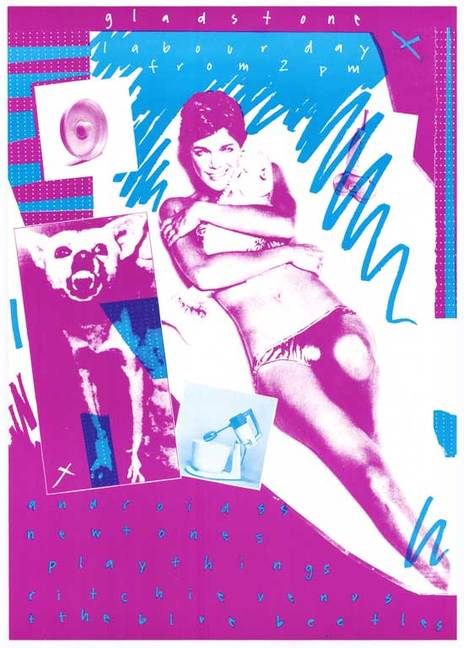
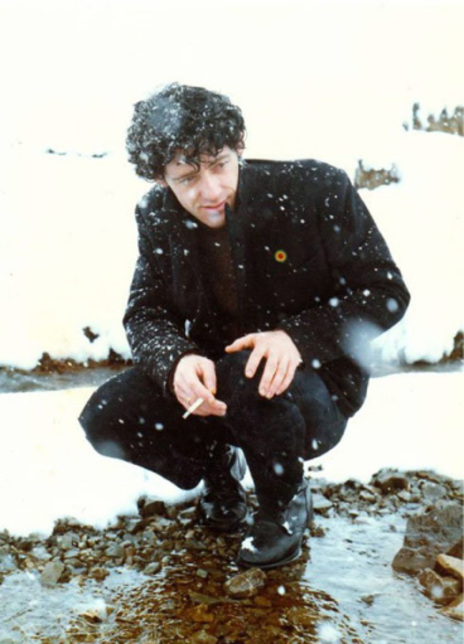
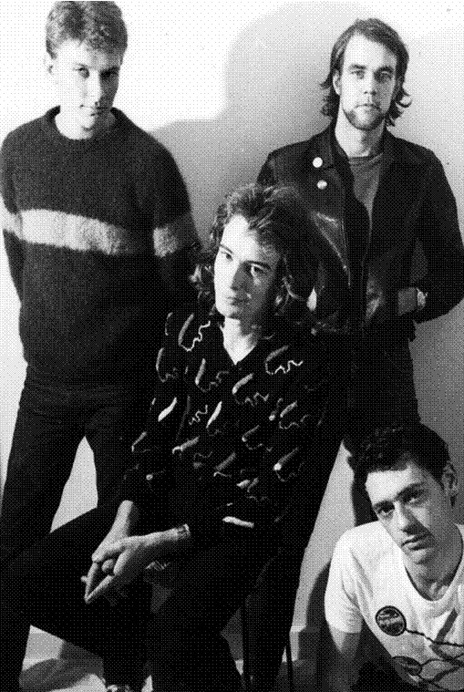
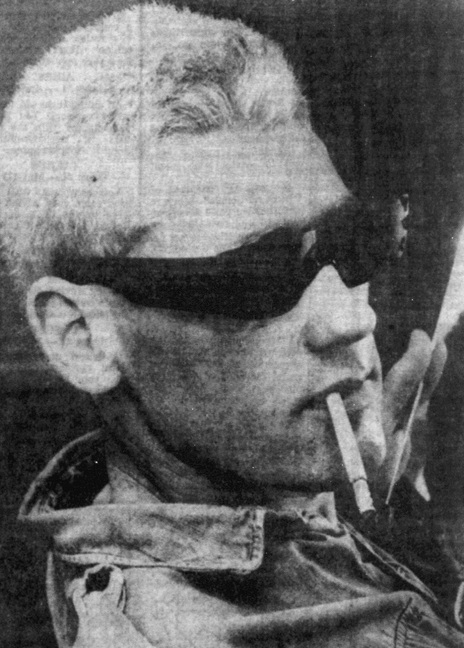
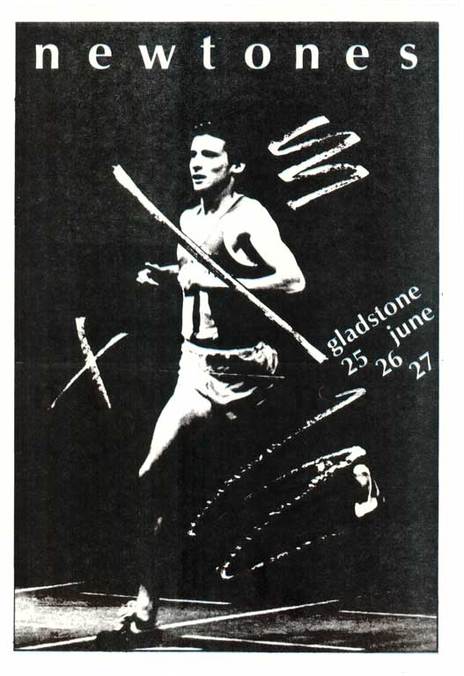
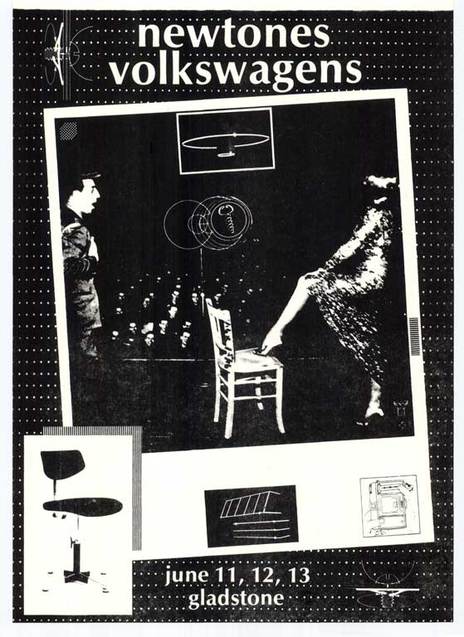
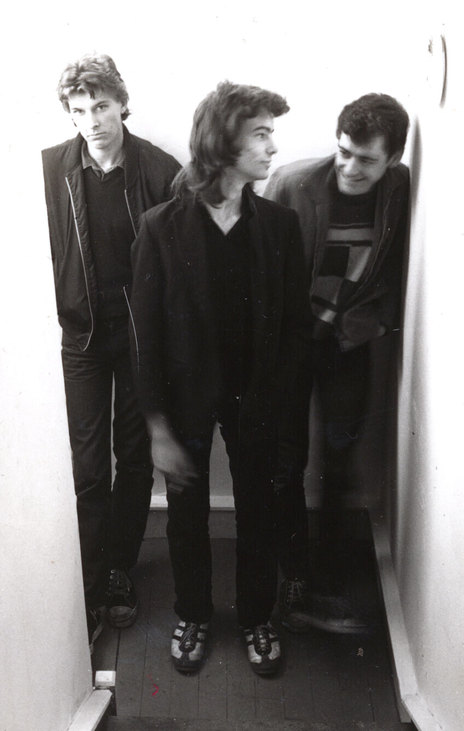
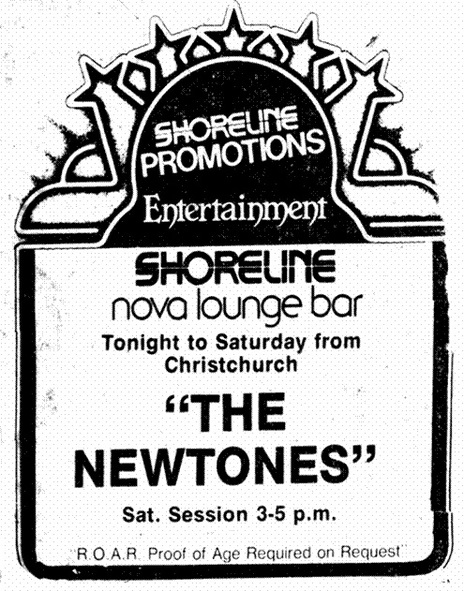
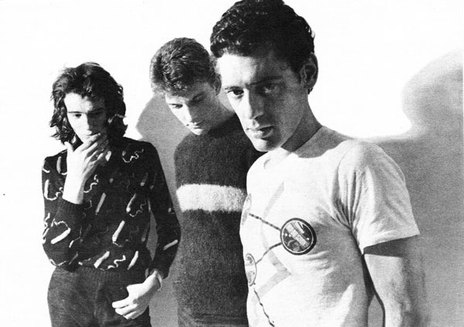
In 1978 The Scavengers asked Tony to come to Auckland to replace departing singer Mike Lezbian. Tony came north, stayed for a while then declined and went back to Christchurch.
Visit our sister site
NZ On ScreenMade with funding from
NZ On Air
